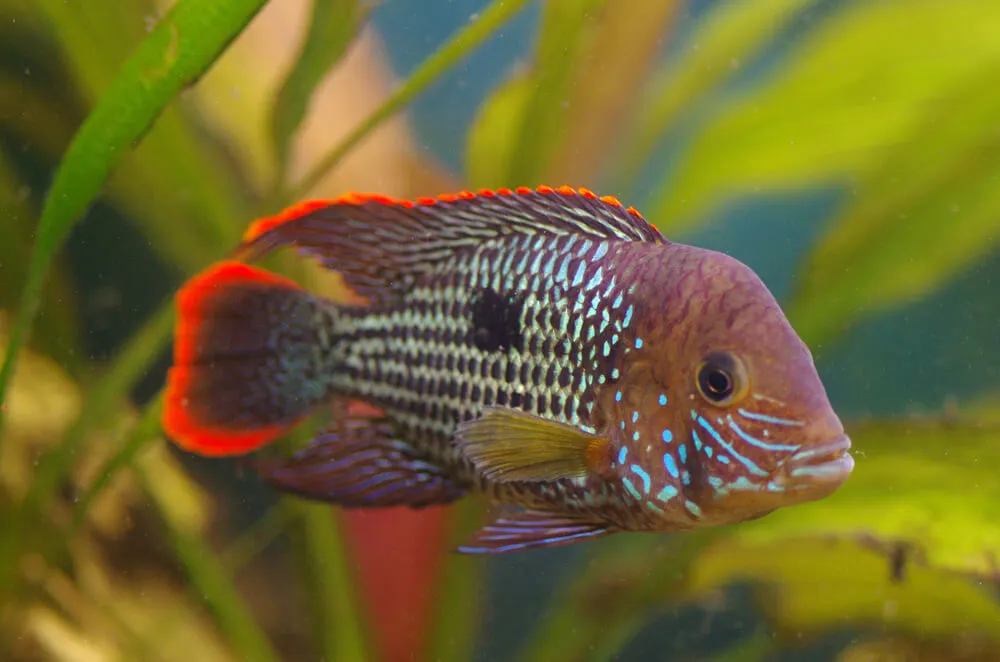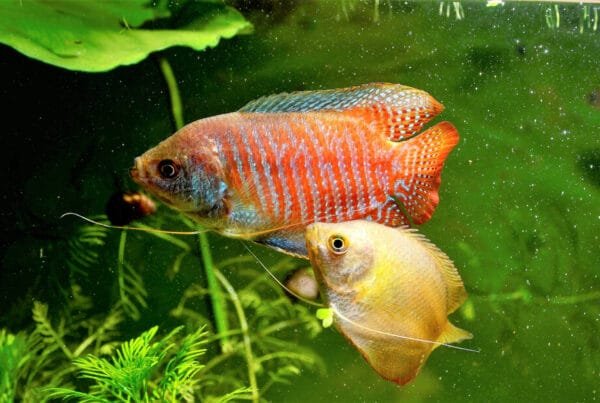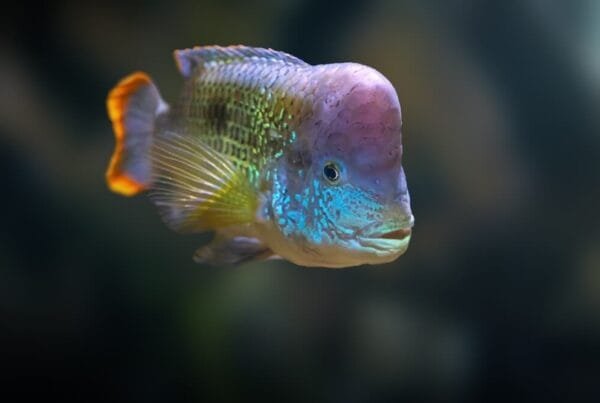Have you ever wondered how long a Betta fish can live? Well, look no further! This article explores the fascinating world of Betta fish and uncovers the secrets of their lifespan. From their vibrant colors to their unique personalities, Betta fish have captured the hearts of fish enthusiasts around the world. So, if you’re curious to know just how long these beautiful creatures can grace your aquarium, read on to discover the surprising lifespan of a Betta fish.
Factors Affecting the Lifespan of a Betta Fish
Betta fish, also known as Siamese fighting fish, are popular pets known for their vibrant colors and long, flowing fins. However, their lifespan can vary depending on various factors. Understanding these factors is crucial for ensuring the longevity of your Betta fish and providing them with a healthy and fulfilling life.
Water Quality
Maintaining clean and stable water is one of the most important factors in determining the lifespan of a Betta fish. These fish are highly sensitive to changes in water parameters, and poor water conditions can lead to stress, disease, and ultimately, a shortened lifespan.
To provide clean water, it is essential to regularly clean the tank and perform partial water changes. Betta fish require a tank with a filtration system to remove harmful substances and maintain proper water circulation. Regular testing of water parameters, such as pH, ammonia, nitrite, and nitrate levels, is also necessary to ensure a healthy environment for your Betta fish.
Tank Size and Environment
The size of the tank and the overall environment play a significant role in the lifespan of a Betta fish. In general, a larger tank is always better for these fish, as it provides more space for swimming and reduces the risk of stress-related issues.
A suitable tank size for a Betta fish is at least five gallons, although larger tanks are preferable. It is important to provide plenty of hiding spots, such as caves or plants, to mimic their natural habitat and give them a sense of security. A well-maintained and properly decorated tank can significantly improve the overall well-being and lifespan of your Betta fish.
Diet and Nutrition
Like any other living creature, a Betta fish’s diet and nutrition greatly impact its health and lifespan. These fish are carnivorous and require a diet consisting primarily of high-quality betta pellets or flakes, supplemented with occasional treats, such as frozen or live foods.
Overfeeding can lead to obesity and other health issues, so it is crucial to feed them only the amount they can consume within a few minutes. Additionally, providing a varied diet and incorporating essential nutrients, such as protein, vitamins, and minerals, is vital to meet their dietary requirements and ensure a long and healthy life.
Genetics and Breeding
Genetics and breeding can also influence the lifespan of a Betta fish. Fish bred from healthy and genetically diverse parents generally have a higher chance of living longer compared to those with poor genetics or inbred ancestry.
Avoiding inbreeding and choosing healthy breeding stock is essential for maintaining the overall health and vitality of Betta fish. Breeding should only be undertaken by experienced individuals who have a thorough understanding of genetic principles and can ensure the well-being of the fish involved.
Health and Disease
The health and susceptibility to diseases can significantly impact the lifespan of a Betta fish. Proper care and monitoring for signs of illness are necessary to identify and address health issues promptly.
Regular observation of your Betta fish’s behavior, appetite, and physical condition can help detect any deviations from normality early on. Promptly treating any health issues and providing suitable medication, as prescribed by a veterinarian, can help prolong their lifespan and improve their overall quality of life.
Average Lifespan of a Betta Fish
The average lifespan of a Betta fish can range from two to five years, depending on various factors. With optimal care and a suitable environment, it is possible to extend their lifespan beyond these averages.
It is important to note that the lifespan of a Betta fish can vary significantly between individual fish, and some may even live for up to eight years or more. However, achieving such longevity requires exceptional care, genetics, and a little bit of luck.
How to Improve the Lifespan of a Betta Fish
If you want to ensure that your Betta fish lives a long and healthy life, there are several essential steps you can take.
Provide Clean and Stable Water
Maintaining clean and stable water conditions should be a top priority when it comes to the care of Betta fish. Regularly cleaning the tank, performing partial water changes, and monitoring water parameters are necessary to provide a healthy environment.
Investing in a good filtration system appropriate for the tank size can help remove toxins and maintain proper water quality. It is also essential to avoid overcrowding the tank, as an excessive number of fish can easily lead to poor water conditions.
Provide Appropriate Tank Size and Environment
Giving your Betta fish an appropriate tank size and environment is crucial for their well-being and lifespan. As mentioned earlier, a tank of at least five gallons is recommended, but larger tanks are even better.
Betta fish thrive in environments that resemble their natural habitats. Providing plenty of hiding spots, such as caves, plants, or decorations, creates a sense of security and reduces stress. Ideally, the tank should also be heated to maintain a stable temperature between 76-82°F (24-28°C), as Betta fish are tropical creatures.
Feed a Balanced and Nutritious Diet
A well-balanced and nutritious diet is vital for the overall health and longevity of Betta fish. Opt for high-quality betta pellets or flakes as the main staple, as they contain essential nutrients necessary for their well-being.
Occasional treats, such as frozen or live foods like bloodworms or brine shrimp, can provide additional nutrients and variety. Remember to feed them only the amount they can consume within a few minutes to prevent overfeeding and subsequent health issues.
Avoid Inbreeding and Choose Healthy Breeding Stock
Maintaining genetic diversity is crucial in preventing health issues and promoting a longer lifespan in Betta fish. Avoid inbreeding and choose breeding stock with good genetics and overall health.
Breeding Betta fish should only be undertaken by experienced individuals who have a comprehensive understanding of genetic principles and can ensure the well-being of the fish involved. It is essential to be selective during the breeding process to avoid passing on any genetic predispositions to disease or other health problems.
Monitor and Treat Health Issues
Regularly monitoring the health of your Betta fish is essential in identifying and addressing any health issues promptly. Keep an eye out for changes in behavior, appetite, or physical appearance that may indicate illness.
If you suspect that your Betta fish is unwell, it is crucial to consult with a qualified veterinarian who specializes in fish to obtain a proper diagnosis and treatment plan. Prompt and appropriate treatment can significantly improve the chances of a full recovery and extend the lifespan of your Betta fish.
Common Health Issues in Betta Fish
Betta fish are susceptible to several common health issues that can significantly impact their lifespan. Here are a few of the most prevalent ones:
Fin Rot
Fin rot is a bacterial infection that affects the fins and can quickly spread to other parts of the Betta fish’s body. Symptoms include ragged, decaying fins, discoloration, and a general deterioration in the fish’s overall health.
Maintaining clean water conditions and providing a stress-free environment are crucial in preventing and treating fin rot. In severe cases, medication prescribed by a veterinarian may be necessary.
Ich or White Spot Disease
Ich, also known as white spot disease, is caused by a parasite and manifests as tiny white spots on the Betta fish’s body and fins. Affected fish may show signs of rubbing against objects and excessive flashing.
Raising the water temperature slightly, adding aquarium salt, and using appropriate medications can help treat ich. It is important to address this disease promptly, as it can lead to severe stress and even death if left untreated.
Velvet Disease
Velvet disease, caused by a parasitic protozoan, appears as a yellowish-gold or rust-colored dust on the fish’s body and fins. Affected fish may exhibit lethargy, loss of appetite, and excessive mucus production.
Treating velvet disease usually involves raising the water temperature, using appropriate medications, and isolating the infected fish to prevent further spread within the tank. Proper quarantine procedures for new fish can also help prevent the introduction of the disease into a tank.
Ammonia Poisoning
Ammonia poisoning occurs when the levels of ammonia in the tank exceed safe limits. Accumulated ammonia, primarily from fish waste and decaying matter, can cause severe damage to the fish’s gills and organs.
Regularly testing water parameters, performing regular water changes, and maintaining an appropriate filtration system are crucial in preventing ammonia poisoning. Promptly addressing any spikes in ammonia levels and taking immediate corrective measures are essential for the health and longevity of Betta fish.
Dropsy
Dropsy, also known as “pinecone disease,” is a symptom rather than a specific disease. It is characterized by the swelling of the fish’s abdomen due to fluid retention, giving the fish a pinecone-like appearance.
Dropsy can be caused by various underlying factors, such as bacterial infections or organ failure. It often indicates a severe health issue and requires immediate veterinary attention. Unfortunately, dropsy can be challenging to treat, and the prognosis may not always be favorable.
Signs of Aging in Betta Fish
Just like any living creature, Betta fish show signs of aging as they grow older. These signs can help you determine the age and overall health of your Betta fish:
Color Fading
One of the noticeable signs of aging in Betta fish is the fading or dulling of their vibrant colors. As they age, their colors may become less intense, and certain patterns or markings may begin to fade.
Color fading can also be an indication of poor health or stress, so it is important to monitor other signs and consult with a veterinarian if necessary.
Slower Movement
As Betta fish age, they may exhibit slower and more sluggish movements compared to their younger counterparts. This change in behavior is natural and often a result of the natural aging process.
However, if you notice sudden changes in movement, such as difficulty swimming or staying balanced, it could be a sign of an underlying health issue, and seeking veterinary advice is recommended.
Decreased Appetite
Older Betta fish may exhibit a decreased appetite and eat less compared to when they were younger. This decrease in appetite can be attributed to a slowdown in their metabolism, dental issues, or other health concerns.
Offering a variety of high-quality foods and observing their eating habits can help identify any significant changes or abnormalities. If the decreased appetite persists or is accompanied by other concerning symptoms, consult with a veterinarian.
Sternal Kidney Enlargement
Sternal kidney enlargement, medically known as chronic renal disease, is a common age-related condition in Betta fish. It involves the enlargement of the sternal kidney, which is responsible for filtering waste products from the bloodstream.
While sternal kidney enlargement is often irreversible, managing the water quality, providing a low-protein diet, and ensuring a stress-free environment can help slow down the progression and maintain the overall well-being of the fish.
Comparing Male and Female Betta Fish Lifespan
In general, female Betta fish tend to have a slightly longer lifespan compared to their male counterparts. This difference can primarily be attributed to the reproductive nature of male Betta fish.
Male Betta fish are known for their elaborate finnage and vibrant colors, which are the result of their aggressive nature and competition for mates. The intense display of aggression during fights can result in injuries and increased stress, ultimately impacting their lifespan.
On the other hand, female Betta fish are less aggressive and do not engage in territorial disputes. This relatively less stressful lifestyle may contribute to their longer lifespan.
However, it is important to note that individual care and genetics play a more significant role in determining the lifespan of a Betta fish than their gender. Providing optimal care, maintaining a suitable environment, and addressing any health issues promptly are crucial for ensuring the longevity of both male and female Betta fish.
The Oldest Recorded Betta Fish
The oldest recorded Betta fish to date was named “Colombo” and lived to be an astonishing 11 years old. Colombo was a veiltail Betta fish owned by a fish breeder in London, UK. His remarkable lifespan is often attributed to exceptional care, genetics, and a little bit of luck.
While Colombo’s longevity is extraordinary, it is important to remember that not all Betta fish will live as long. The average lifespan of Betta fish, as mentioned earlier, usually ranges from two to five years, depending on various factors.
Betta Fish Lifespan in the Wild vs. Captivity
Betta fish in the wild typically have a shorter lifespan compared to those in captivity. In their natural habitats, Betta fish face numerous challenges, such as predators, diseases, and limited resources, which can significantly impact their lifespan.
In captivity, Betta fish are provided with a controlled environment, adequate nutrition, and protection from predators, resulting in a generally longer lifespan. Optimal care, regular monitoring, and addressing any health concerns promptly can further enhance their lifespan in captivity.
Can You Extend the Lifespan of a Betta Fish?
While you cannot completely control the lifespan of a Betta fish, providing exceptional care and following the guidelines mentioned earlier can significantly improve their chances of living a long and healthy life.
Maintaining clean and stable water conditions, providing an appropriate tank size and environment, feeding a balanced diet, avoiding inbreeding, monitoring for health issues, and promptly seeking veterinary advice when needed are essential in extending the lifespan of a Betta fish.
Remember that each Betta fish is unique, and individual care and genetics play a significant role in determining their lifespan. With proper care and attention, you can maximize the potential lifespan of your beloved Betta fish and give them the best possible quality of life.
Conclusion
The lifespan of a Betta fish can be influenced by various factors, including water quality, tank size and environment, diet and nutrition, genetics and breeding, and overall health and disease management. Understanding these factors and taking appropriate measures can significantly improve the lifespan of your Betta fish.
By providing clean and stable water, an appropriate tank size and environment, a balanced diet, healthy breeding stock, and prompt attention to health issues, you can ensure that your Betta fish lives a long and healthy life. Remember that while there is no guarantee of extending an individual fish’s lifespan, providing optimal care and attention is the best way to give them the best chance at a long and fulfilling life.






